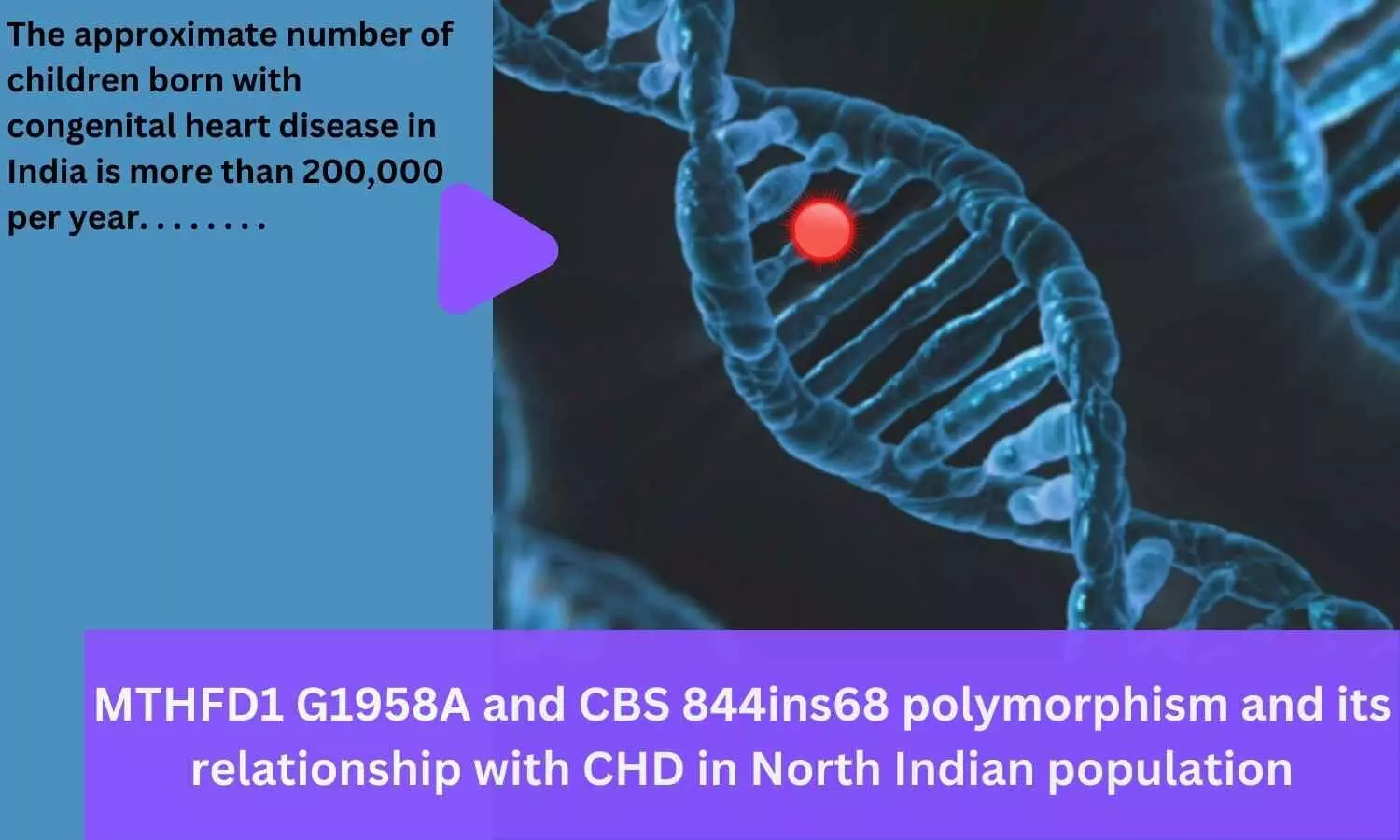- Home
- Medical news & Guidelines
- Anesthesiology
- Cardiology and CTVS
- Critical Care
- Dentistry
- Dermatology
- Diabetes and Endocrinology
- ENT
- Gastroenterology
- Medicine
- Nephrology
- Neurology
- Obstretics-Gynaecology
- Oncology
- Ophthalmology
- Orthopaedics
- Pediatrics-Neonatology
- Psychiatry
- Pulmonology
- Radiology
- Surgery
- Urology
- Laboratory Medicine
- Diet
- Nursing
- Paramedical
- Physiotherapy
- Health news
- AYUSH
- State News
- Andaman and Nicobar Islands
- Andhra Pradesh
- Arunachal Pradesh
- Assam
- Bihar
- Chandigarh
- Chattisgarh
- Dadra and Nagar Haveli
- Daman and Diu
- Delhi
- Goa
- Gujarat
- Haryana
- Himachal Pradesh
- Jammu & Kashmir
- Jharkhand
- Karnataka
- Kerala
- Ladakh
- Lakshadweep
- Madhya Pradesh
- Maharashtra
- Manipur
- Meghalaya
- Mizoram
- Nagaland
- Odisha
- Puducherry
- Punjab
- Rajasthan
- Sikkim
- Tamil Nadu
- Telangana
- Tripura
- Uttar Pradesh
- Uttrakhand
- West Bengal
- Medical Education
- Industry
MTHFD1 G1958A and CBS 844ins68 polymorphism and its relationship with CHD in North Indian population
Overview
The approximate number of children born with congenital heart disease in India is more than 200,000 per year. A recent study published in the Indian Journal of Medical Sciences (Scientific Scholar) showed that both MTHFD1 G1958A and CBS 844ins68 polymorphism were not found to be genetic risk factors in the development of congenital heart defects in the population of Jammu region of Jammu and Kashmir UT.
MTHFD1 and CBS are two of the key enzymes that play a pivotal role in the metabolic pathway of homocysteine. Most of the studies revealed that genes involved in folate/homocysteine pathways are involved in the occurrence of congenital heart defects
The study by researchers from Jammu and Kashmir aimed to investigate the role of common polymorphisms in MTHFD1 and CBS genes in children with congenital heart defects in the Jammu region of Jammu and Kashmir UT.
A total of 160 (80 congenital heart defects patients and 80 controls) children were enrolled in the present case-control study. After extraction of genomic DNA genotyping of SNP MTHFD1 G1958A was done by PCR-RFLP and CBS 844ins68 polymorphism was done by PCR technique.
The results showed that there was no significant association between MTHFD1G1958A and CBS 844ins68 polymorphism with congenital heart defects. In the case of SNP MTHFD1 G1958A allele A was found to be higher in both patient and control group and in CBS 844ins68 polymorphism frequency of risk allele ‘I’ was found higher in cases as compared to controls. The homozygous genotype for 844ins68 (II) was found absent in both the patients and control group.
Reference: Bala A, Raina JK, Sudershan A, Digra S, Dhar MK, Panjaliya RK, et al. Relationship of MTHFD1 G1958A and CBS 844ins68 polymorphism with congenital heart defects in North Indian population (Jammu and Kashmir): A case-control study. Indian J Med Sci 2022;74:126-33.
Speakers
Isra Zaman
B.Sc Life Sciences, M.Sc Biotechnology, B.Ed




